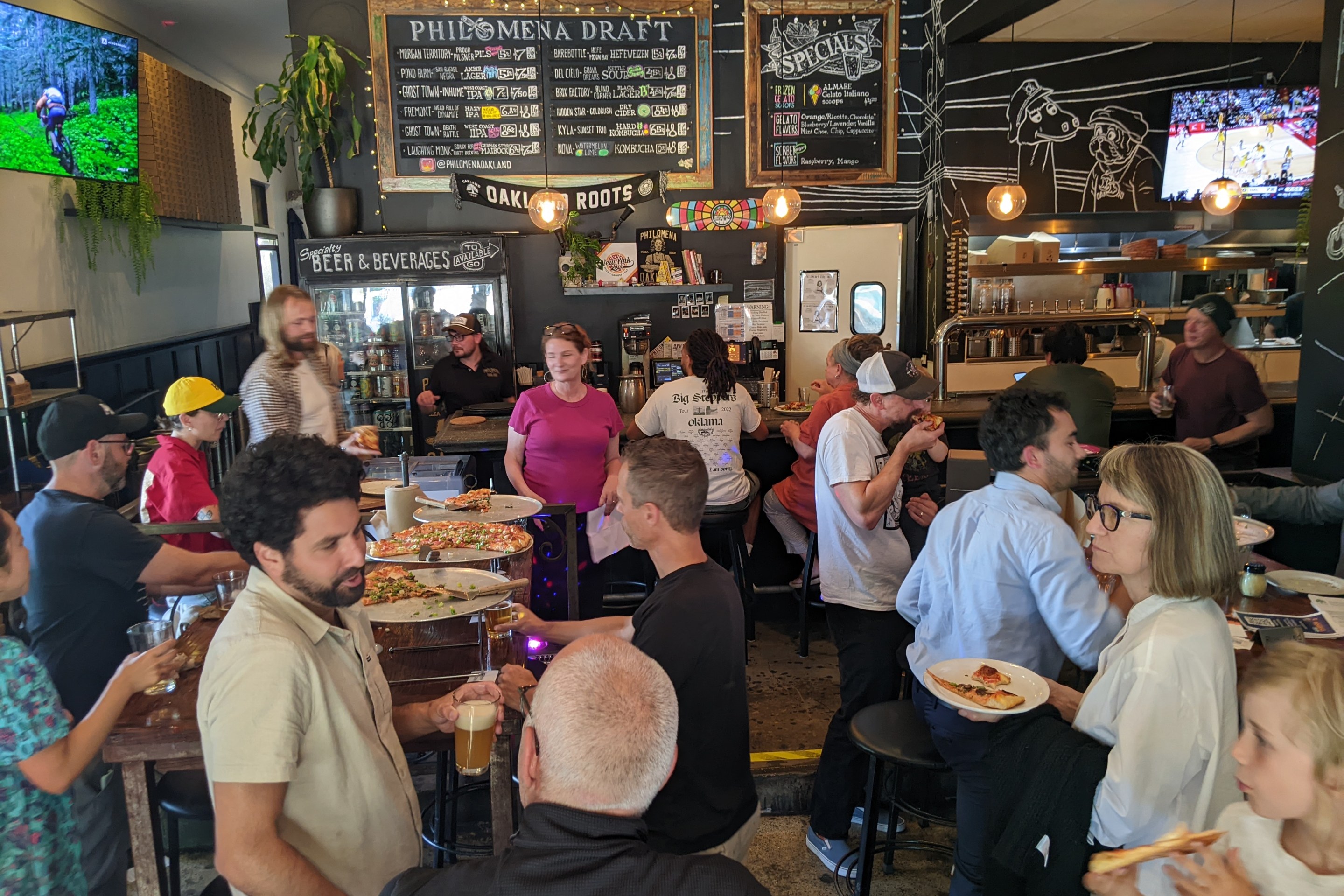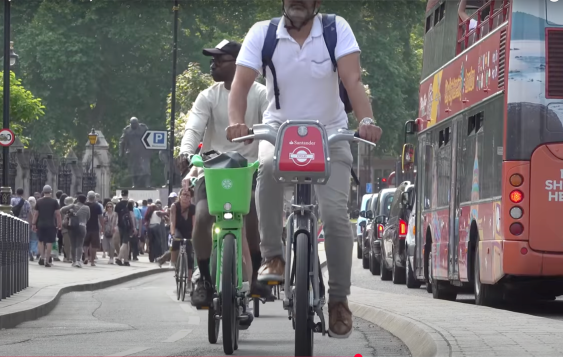 Bamboo Bicycle Studio bike. Photos: Matthew Roth.
Bamboo Bicycle Studio bike. Photos: Matthew Roth.On the way to a local caffeination recharging station near Mint Plaza last week, I locked my bicycle next to two very odd rides: The frames were bamboo and the bamboo tubes were connected with fiberglass. The frames looked solid, but seeing a bike that wasn't made of steel or some alloy was striking in its singularity.
Sitting outside Blue Bottle were two young men who fit the bicycle courier profile quite well, so I took a chance that the bikes might be theirs and asked about them.
The two cyclists were part of the Bamboo Bike Studio in Brooklyn, NY, where they teach weekend bamboo bike building workshops. Josh Rovner, one of the founders of the Bamboo Bike Studio, explained their workshops as an opportunity to teach do-it-yourself bicycle building skills while promoting bamboo as a sustainable design alternative to other bicycle frame materials. Over the course of a weekend, they teach participants how to
build their bikes from scratch and send them off on the bike they just
built.
Rovner, originally a student of film, turned to building bamboo bikes after volunteering for Columbia University's Bamboo Bike Project, where he caught the bug and now makes his living in part by teaching the workshops.
Their studio has been featured in numerous media outlets in the two years they've been teaching classes, which has resulted in tremendous interest in the bikes. Their four-person workshops are booked through September and they have a waiting list approximately 400-people long.
San Francisco was less a business trip than an opportunity to ride the city and Rovner said their next destination for new workshops was Ghana. They will be taking a trip in July to try to establish themselves there and begin teaching frame-building classes.
Asked how they were different from handmade frame builders or bamboo frame specialists like Calfee Design, which has marketed a bamboo bike that can be used for racing, Rovner said, "We don't build these as
performance bikes, we build them to be strong."

As testament to their strength, Rovner, a part-time bicycle courier, has put nearly 4,000 miles on his bike and has found no problems with frame durability.
Though they have experimented with bamboo from various locations in the U.S., Rovner said the bamboo in the frames they currently use is from the Yucatan Peninsula, in Mexico.
Besides the bamboo frame and the fiberglass joints, the frame builders use stainless steel tubing in the seat and to anchor the step to the steering column. They also use factory parts for the transmission, the bottom bracket shell, the front fork and the handlebars.
The cost of the workshop depends on what you build: If you only build a frame, it's $632; if you build a complete bike, it's $948. Rovner admitted they make just enough "to keep playing and keep engineering," though he'd like to scale up and bring costs down.
He also acknowledged "it's a bit of a novel purchase, I think, for someone who
just wants to learn how to build something like this," but he said the interest in learning about bike building is as much the purpose of the classes as making a living doing it.
"I don't want to build you a bike. I don't want to sell you a bike," he said. "I
want to teach you how to build your own and as a consequence I want you
to teach three of your buddies to build their own."






